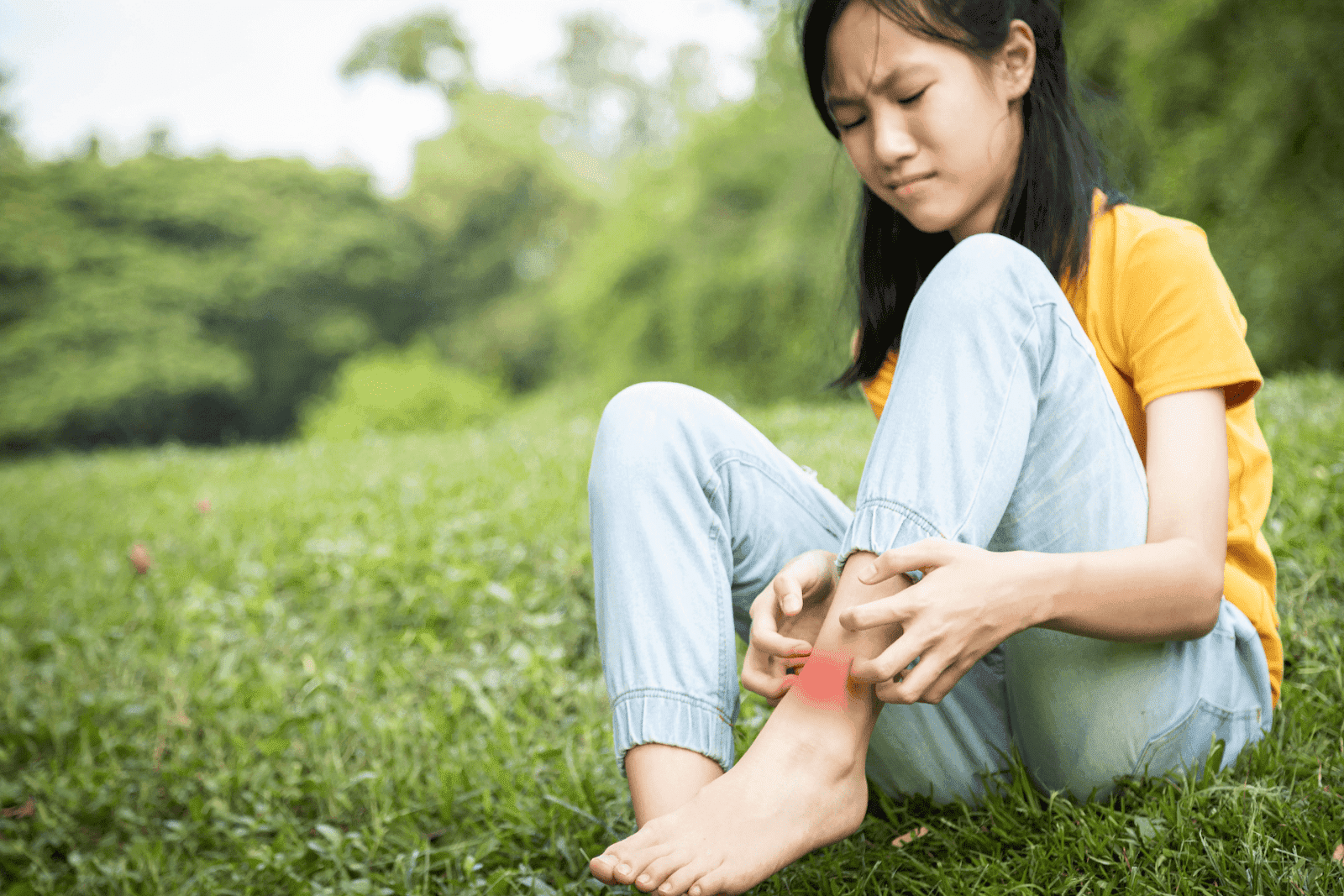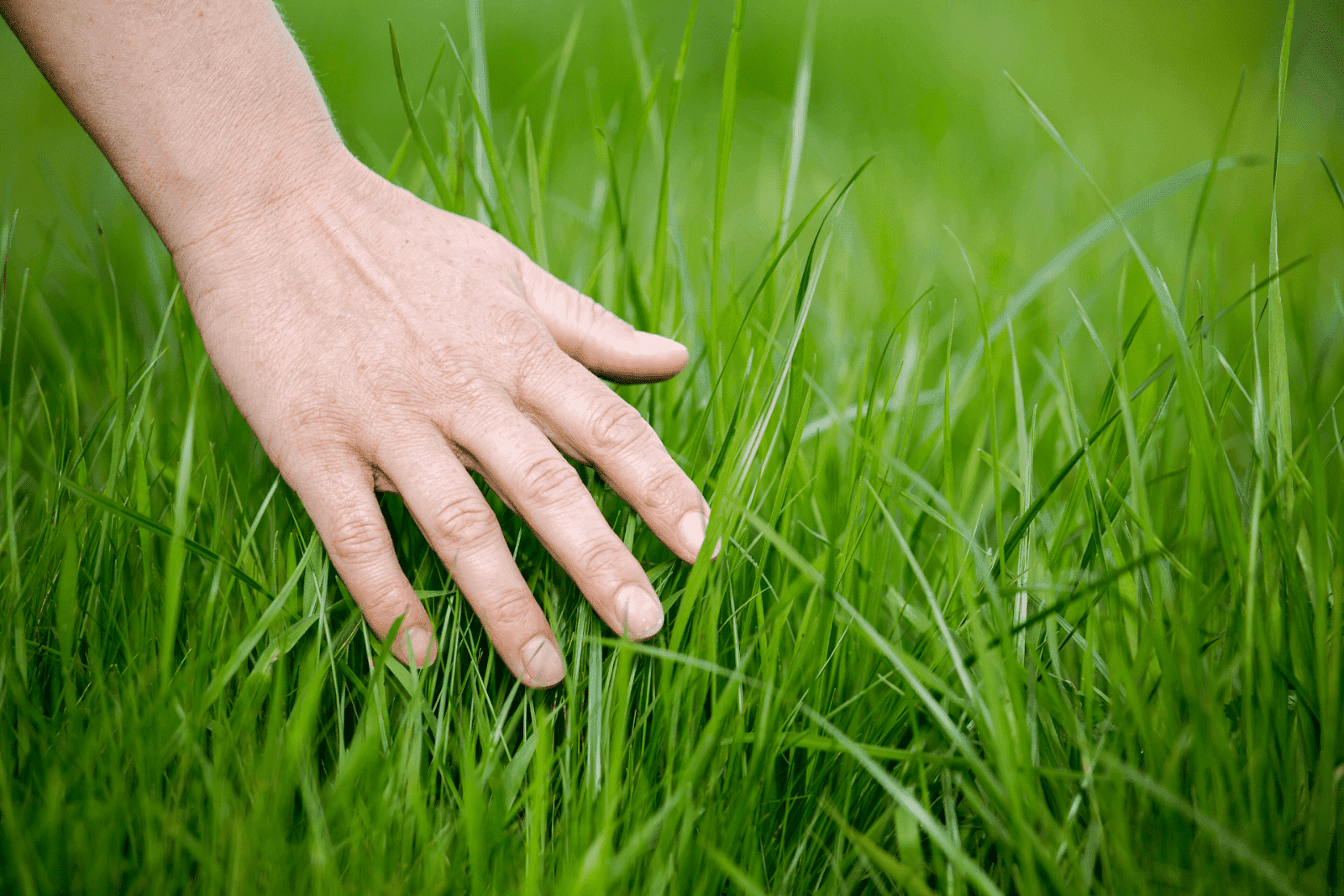Why Does Grass Make Me Itchy?
As the warmer months arrive, many people find themselves spending more time outdoors, enjoying parks, gardens, and open fields. However, for some, this seasonal joy comes [...]
Read More
Medically reviewed by Alan Lucks | MD, Alan Lucks MDPC Private Practice - New York on October 15th, 2025.
Contact dermatitis from direct skin exposure develops within 2-8 hours, creating red, swollen patches that match exactly where the plant touched your body—sometimes with fluid-filled blisters.
Peak pollen seasons occur May through July, with Bermuda and Timothy releasing the highest concentrations between 5-10 AM on warm, windy days.
Mechanical irritation happens because blade edges contain microscopic silica particles that create tiny cuts, explaining why freshly mowed lawns cause more problems than established growth.
Barrier creams containing dimethicone or petrolatum applied 15 minutes before exposure can block up to 95% of plant allergens from reaching skin.
Immediate cold-water rinsing within 10 minutes removes irritating proteins before they bind to skin cells, while hot water actually opens pores and worsens reactions.
As the warmer months arrive, many people find themselves spending more time outdoors, enjoying parks, gardens, and open fields. However, for some, this seasonal joy comes with an uncomfortable side effect: itching after contact with grass. If you’ve ever wondered why grass makes you itchy, you’re not alone. This common reaction can have several causes, ranging from mild skin irritation to allergic responses. Understanding why grass triggers this sensation can help you manage your symptoms and enjoy the outdoors more comfortably.
When your skin comes into contact with grass, a variety of reactions can occur depending on your individual sensitivity and the type of grass. The sensation of itching is a signal from your body that something is irritating your skin or triggering an immune response.
Grass blades themselves can be mildly abrasive, causing mechanical irritation. This is especially true if the grass is coarse or dry. Tiny hairs or rough edges on the grass blades can scratch the skin’s surface, leading to redness, itching, and sometimes small bumps. This type of irritation is usually temporary and resolves quickly once the skin is cleaned and protected.
Beyond physical irritation, many people experience itching due to allergic reactions. Grass pollen and certain proteins found in grass can trigger the immune system to react as if they were harmful invaders. This leads to the release of histamine and other chemicals that cause itching, redness, swelling, and sometimes hives or a rash.
 Common Grass-Related Allergens
Common Grass-Related AllergensGrass pollen is one of the most common outdoor allergens, especially during spring and summer. Different species of grass, such as Bermuda, Timothy, Kentucky bluegrass, and ryegrass, produce pollen that can cause allergic reactions in sensitive individuals. When grass pollen lands on your skin or is inhaled, it can lead to symptoms ranging from sneezing and watery eyes to itchy skin.
In addition to pollen, some grasses produce proteins that can cause contact dermatitis, a type of allergic skin reaction. This condition results in itchy, red, inflamed skin where the grass touches you. The severity varies depending on your immune system and the extent of exposure.
Interestingly, the timing of your exposure to grass can significantly influence your reaction. For instance, mowing the lawn or playing in freshly cut grass can release a higher concentration of pollen and allergens into the air, increasing the likelihood of an allergic response. Additionally, certain weather conditions, such as windy days, can exacerbate pollen dispersal, making it more challenging for those with sensitivities to enjoy outdoor activities. Understanding these factors can help individuals manage their exposure and minimize discomfort.
Moreover, the geographical location and local flora can also play a role in how grass affects your skin. In regions where certain grasses are prevalent, individuals may develop a heightened sensitivity over time, leading to more pronounced reactions. This phenomenon is often seen in individuals who spend significant time outdoors, such as gardeners or athletes. By recognizing the specific types of grass in their environment, people can take proactive steps, such as wearing protective clothing or applying barrier creams, to mitigate skin reactions and enjoy the outdoors with greater comfort.
Not all itching caused by grass is the same. Recognizing the type of reaction you are experiencing can help determine the best way to treat and prevent it.
Contact dermatitis is an inflammatory skin condition triggered by direct contact with an irritant or allergen. In the case of grass, this can be caused by the plant’s sap, pollen, or tiny hairs on the blades. Symptoms include redness, itching, swelling, and sometimes blistering or dry, cracked skin. This reaction usually appears within hours or a day after exposure.
People with sensitive skin or a history of eczema may be more prone to contact dermatitis from grass. Avoiding prolonged contact and washing the affected area promptly can reduce symptoms.
Grass pollen allergy is a type of hay fever that affects millions of people worldwide. While it primarily causes respiratory symptoms like sneezing and nasal congestion, it can also lead to itchy skin and eyes. This allergy is seasonal and tends to flare up when grass is pollinating, typically in late spring and early summer.
Sometimes, the itchiness after being in grass is simply due to mechanical irritation. Coarse grass blades or dry, rough patches can physically scratch the skin, causing mild itching and redness. This reaction is not immune-related and usually resolves quickly with proper skin care.
Fortunately, there are several ways to minimize or prevent itching caused by grass. Taking proactive steps can help you enjoy outdoor activities without discomfort.
Covering your skin with long sleeves, pants, and closed shoes can reduce direct contact with grass. Lightweight, breathable fabrics are best for staying comfortable in warm weather while protecting your skin.
After spending time in grassy areas, showering and changing into clean clothes can wash away pollen, sap, and other irritants. This helps prevent prolonged skin exposure and reduces the chance of developing a rash or itching.
Applying barrier creams or lotions before outdoor activities can create a protective layer on your skin, reducing irritation from grass contact. Products containing ingredients like zinc oxide or petroleum jelly may be helpful.
If you have a known grass pollen allergy, over-the-counter antihistamines or prescription medications can alleviate symptoms. Nasal sprays, eye drops, and oral medications can reduce itching, sneezing, and other allergic reactions.
Most cases of itching from grass are mild and manageable at home. However, there are times when professional medical advice is necessary, especially if symptoms worsen or persist.
If you experience severe itching, swelling, blistering, or signs of infection such as warmth, pus, or fever, it’s important to consult a healthcare provider. Additionally, if you have difficulty breathing, swelling of the face or throat, or other signs of a severe allergic reaction, seek emergency medical care immediately.
For convenient and affordable medical advice, consider using telehealth services like Doctronic.ai. Doctronic offers 24/7 video visits with licensed doctors across all 50 states for less than $40. This service provides quick access to expert care without leaving your home, making it easier to get answers and treatment recommendations when you need them.
Doctronic.ai is revolutionizing the way people access primary care by combining advanced AI technology with real doctors. If you’re unsure about your skin reaction to grass or need guidance on treatment, Doctronic’s AI doctor can provide instant, evidence-based answers drawing on the latest peer-reviewed medical research.
After an AI consultation, you can easily schedule a video visit with a real doctor through the same platform. This seamless experience ensures you receive personalized care tailored to your symptoms and medical history. Plus, Doctronic’s AI remembers your past visits, making it a truly personal healthcare companion.
With over 10 million users already benefiting from Doctronic’s innovative approach, it’s a trusted resource for anyone seeking fast, smart, and personal medical advice. Visit Doctronic.ai today to learn more and get started.
 Additional Tips for Outdoor Enjoyment Without Itching
Additional Tips for Outdoor Enjoyment Without ItchingBeyond managing grass-related itching, adopting healthy skin habits can enhance your outdoor experience. Here are some extra tips to keep your skin comfortable and healthy:
Stay Hydrated: Drinking plenty of water helps maintain skin moisture and resilience.
Moisturize Regularly: Use fragrance-free moisturizers to soothe and protect your skin.
Avoid Scratching: Scratching can worsen irritation and increase the risk of infection.
Identify Specific Triggers: If you suspect a particular type of grass or plant causes your symptoms, try to avoid those areas or wear extra protection.
Itching caused by grass is a common issue that can stem from physical irritation, allergic reactions, or a combination of both. Understanding the underlying causes and knowing how to prevent and manage symptoms can help you enjoy the outdoors comfortably. If you ever have questions or need medical advice about your skin reactions, Doctronic.ai offers fast, affordable, and personalized care right at your fingertips.
By taking simple precautions and seeking timely help when needed, grass-related itching doesn’t have to keep you from enjoying nature’s beauty.
If grass-related itching is keeping you from enjoying the great outdoors, Doctronic is here to help. Our AI doctor provides fast, innovative, and personal medical advice, all at no cost. Get your questions answered and treatment recommendations in seconds, based on the latest peer-reviewed medical research. And when you're ready for a human touch, our telehealth video visits with licensed doctors are available 24/7 in all 50 states for less than $40. Join over 10 million users who have experienced the most personal care available. Skip the line. Talk to an AI Doctor Now, for free.
Most reactions occur from direct contact rather than airborne pollen, making protective clothing and immediate rinsing your best defense. Seek medical care if you develop blistering, spreading redness beyond contact sites, or any breathing difficulties. For persistent symptoms or questions about your specific reactions, Doctronic can provide personalized guidance.
As the warmer months arrive, many people find themselves spending more time outdoors, enjoying parks, gardens, and open fields. However, for some, this seasonal joy comes [...]
Read More